
Erin Garcia de Jesús is a staff writer at Science News. She holds a Ph.D. in microbiology from the University of Washington, where she studied virus/host co-evolution. After deciding science as a whole was too fascinating to spend a career studying one topic, she went on to earn a master’s in science communication from the University of California, Santa Cruz. Her writing has appeared in Nature News, Science, Eos, Smithsonian Voices and more, and she was the winter 2019 science writing intern at Science News.

Trustworthy journalism comes at a price.
Scientists and journalists share a core belief in questioning, observing and verifying to reach the truth. Science News reports on crucial research and discovery across science disciplines. We need your financial support to make it happen – every contribution makes a difference.
All Stories by Erin Garcia de Jesús
-
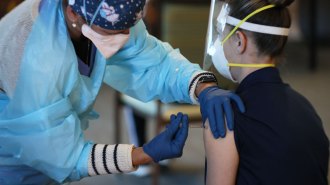 Health & Medicine
Health & MedicineThe more contagious coronavirus variant may soon be the U.S.’s dominant strain
More rigorous efforts to vaccinate, wear masks and social distance are needed to curb the variant’s spread, CDC says.
-
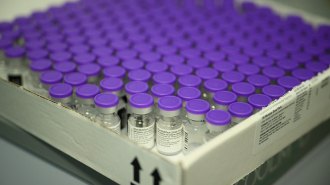 Health & Medicine
Health & MedicineCould delaying a second vaccine dose lead to more dangerous coronavirus strains?
Some experts worry extending the time between vaccine doses could help the virus evolve in potentially harmful ways, but viral evolution is complex.
-
 Health & Medicine
Health & MedicineThe new U.K. coronavirus variant is concerning. But don’t freak out
A new version of the coronavirus may be better at spreading from person to person, but there’s still a lot scientists don’t know.
-
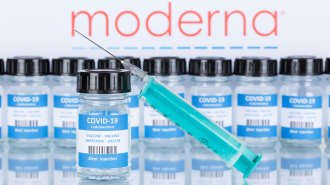 Health & Medicine
Health & MedicineHow does the newly authorized Moderna COVID-19 vaccine compare to Pfizer’s?
The FDA has granted emergency use authorization to Moderna’s COVID-19 vaccine, bringing the number of vaccines available in the United States to two.
-
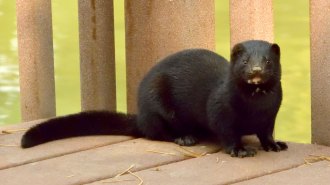 Animals
AnimalsA mink in Utah is the first known case of the coronavirus in a wild animal
A U.S. mink is so far the only known free-ranging animal to have contracted the coronavirus and likely got infected from a nearby mink farm.
-
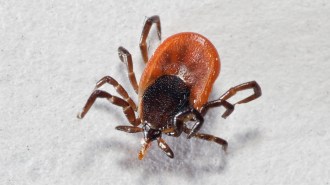 Health & Medicine
Health & MedicineHow some ticks protect themselves from deadly bacteria on human skin
A gene that ticks acquired from bacteria 40 million years ago may help the arachnids keep potential pathogens at bay while feeding on blood.
-
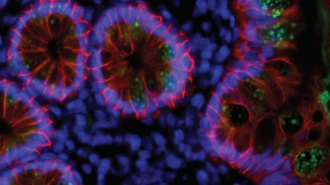 Health & Medicine
Health & MedicineImmunity to COVID-19 may persist six months or more
Even after recovery, the body continues to improve its antibody response to the coronavirus — perhaps thanks to viral bits hiding in the intestine.
-
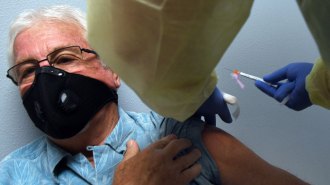 Health & Medicine
Health & MedicineModerna says its COVID-19 vaccine is nearly 95 percent effective
Another coronavirus vaccine appears to be very effective in preventing people from developing COVID-19 symptoms.
-
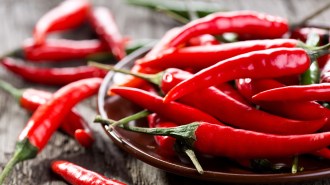 Chemistry
ChemistryA new portable device can reveal a chili pepper’s heat
The “Chilica-pod” measures levels of the fiery capsaicin compound in peppers.
-
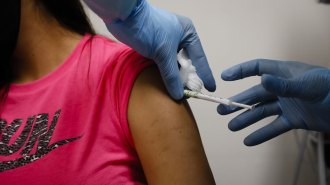 Health & Medicine
Health & MedicinePfizer’s COVID-19 vaccine is 90% effective, preliminary trial data show
An analysis of 94 COVID-19 cases shows that the mRNA-based vaccine can protect people from getting sick, though the trial is ongoing.
-
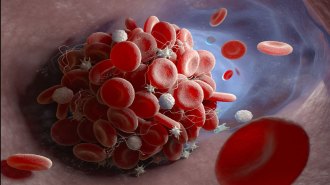 Health & Medicine
Health & MedicineHow COVID-19 may trigger dangerous blood clots
Clots may stem from net-casting immune cells that, instead of fighting a coronavirus infection, capture red blood cells and platelets.
-
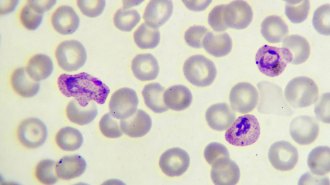 Microbes
MicrobesHow malaria parasites hide from the human immune system
By turning genes on or off, the parasite keeps blood levels low but persistent, so infection doesn’t set off alarm bells for the immune system.